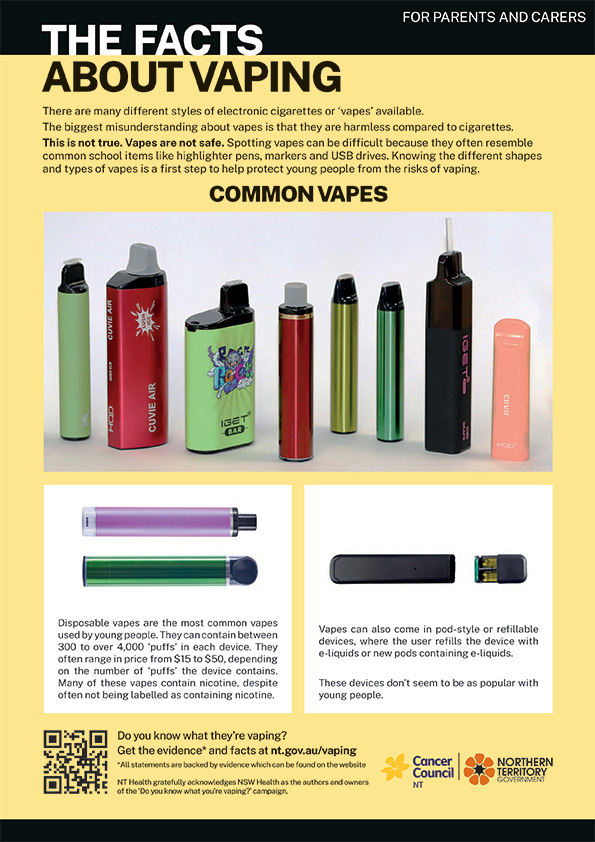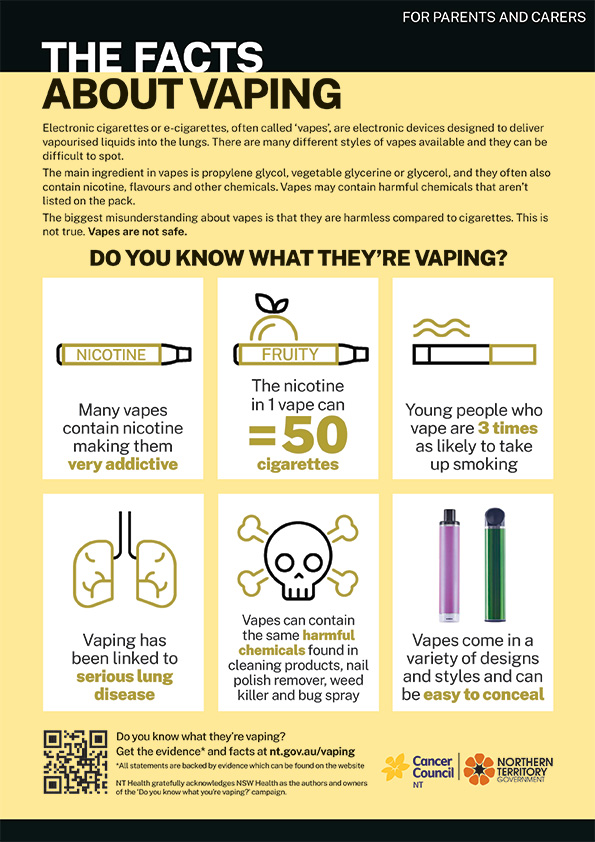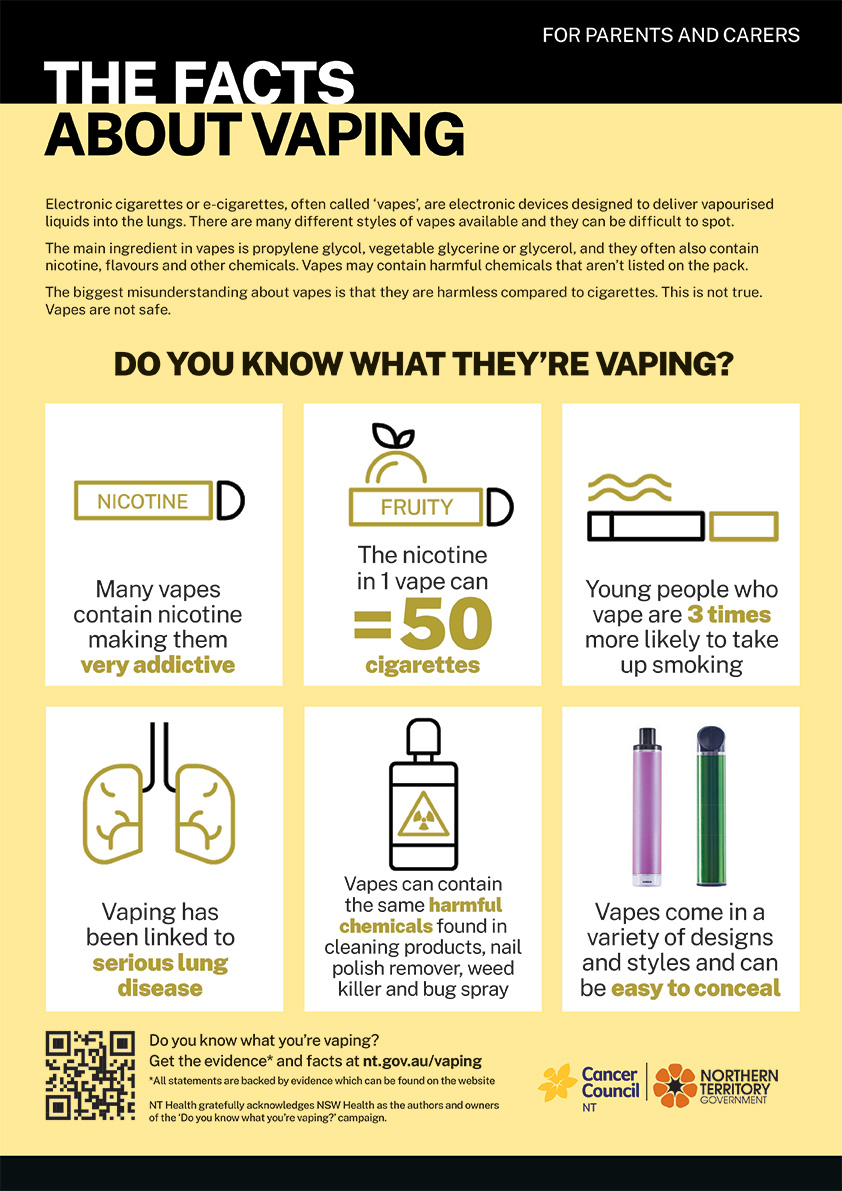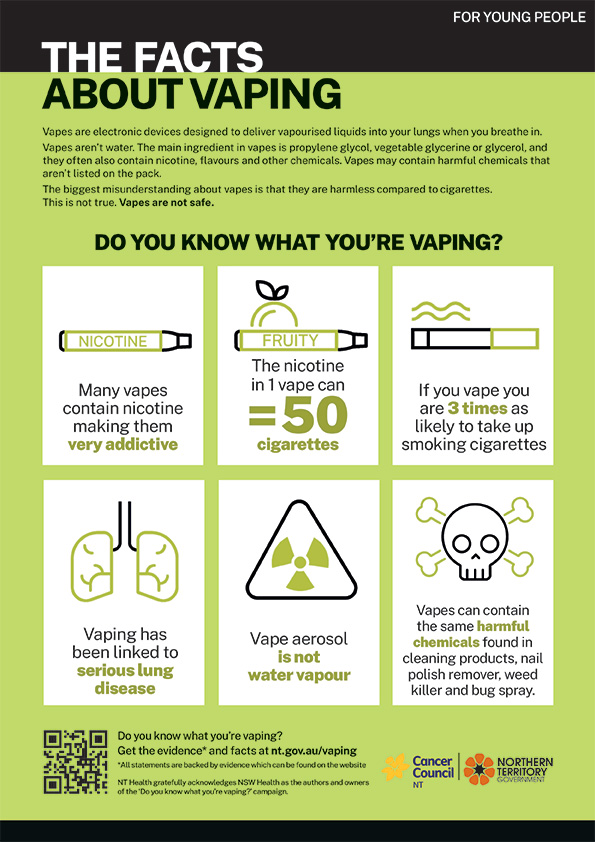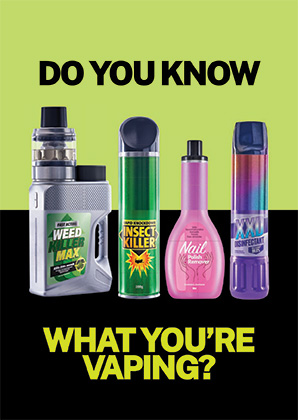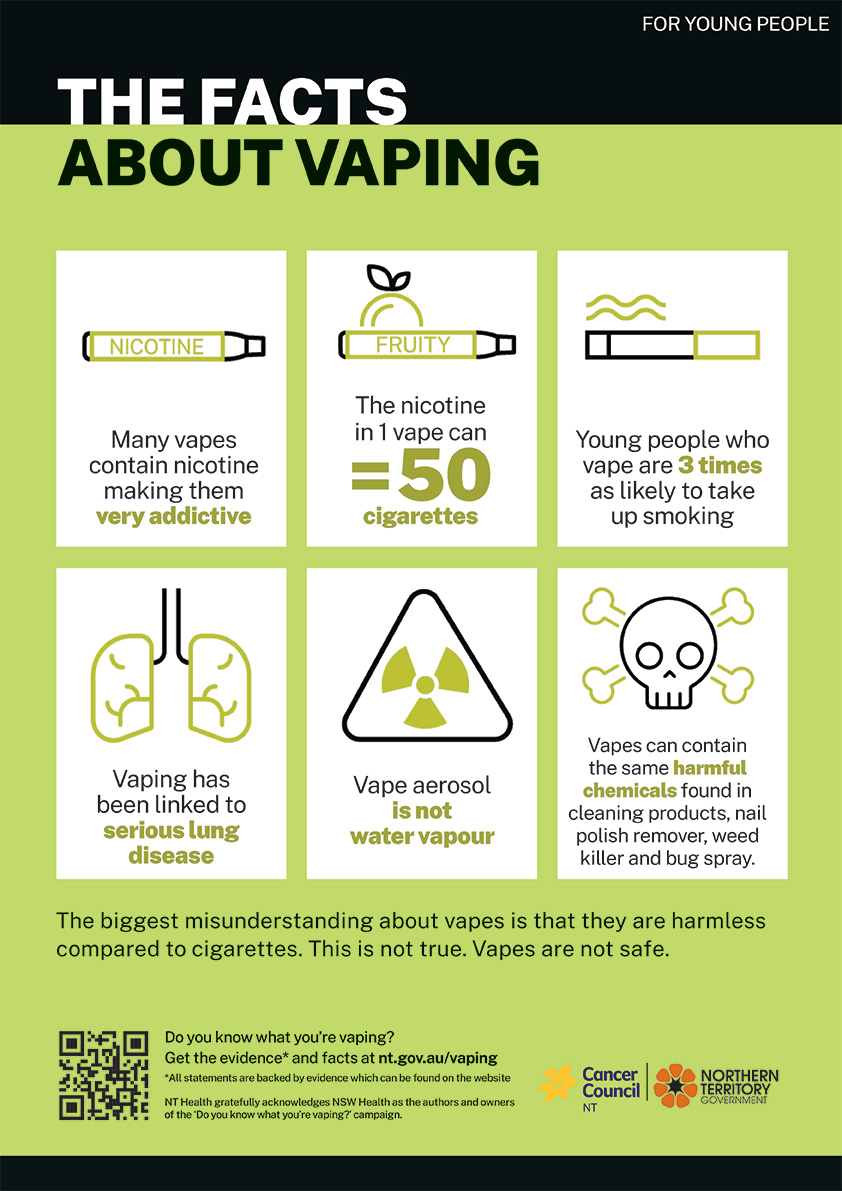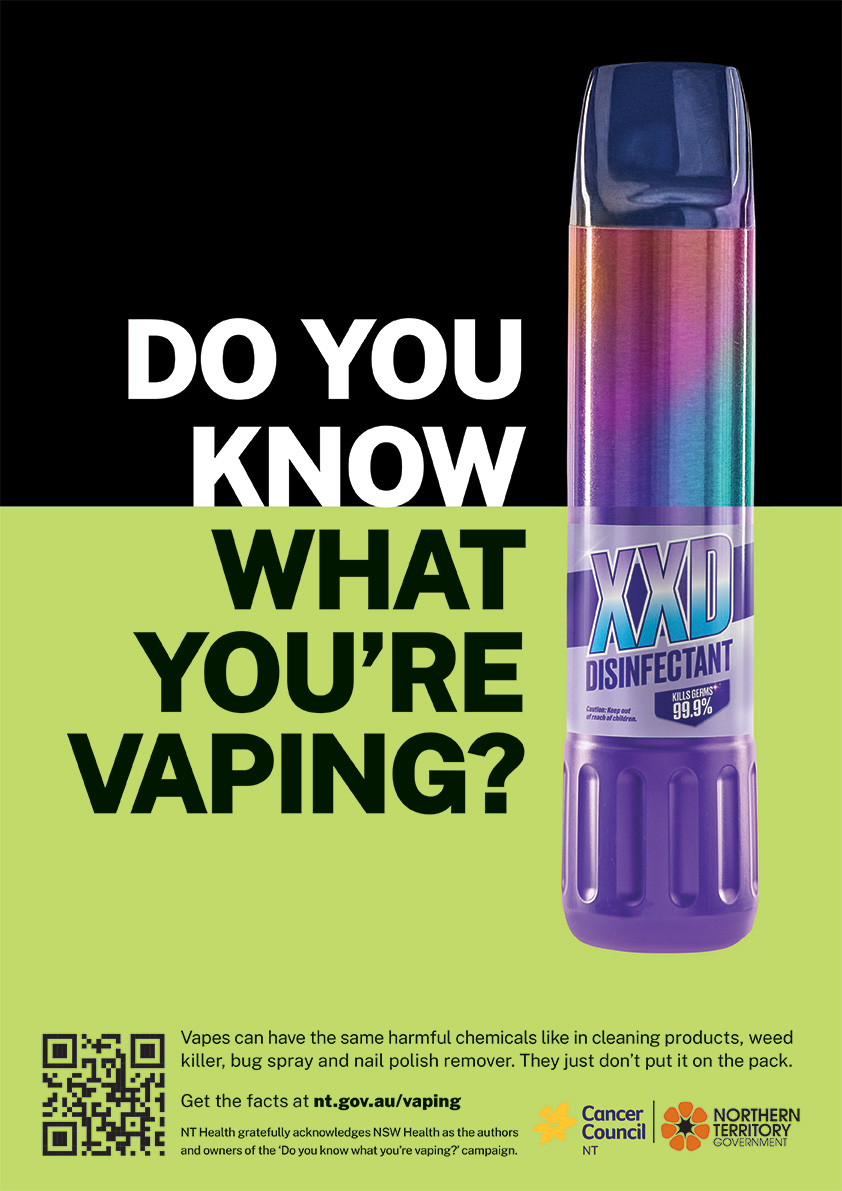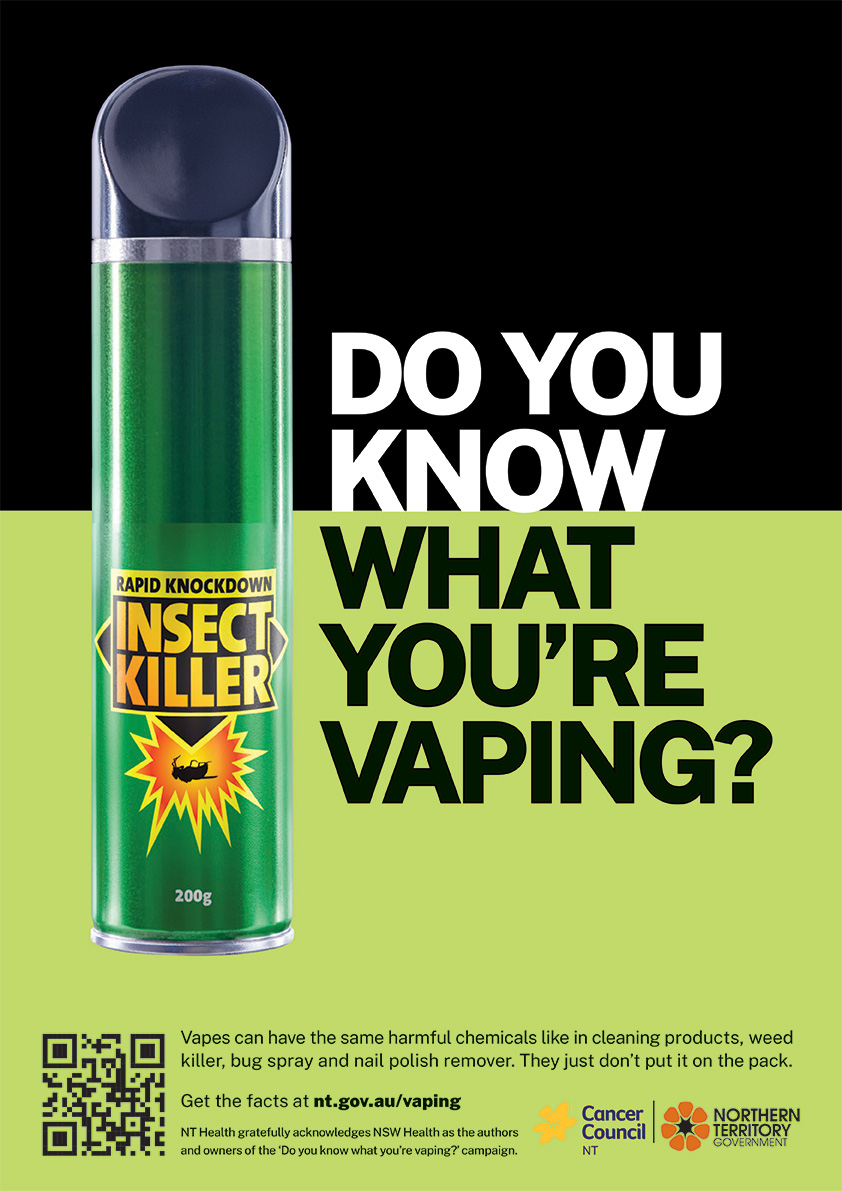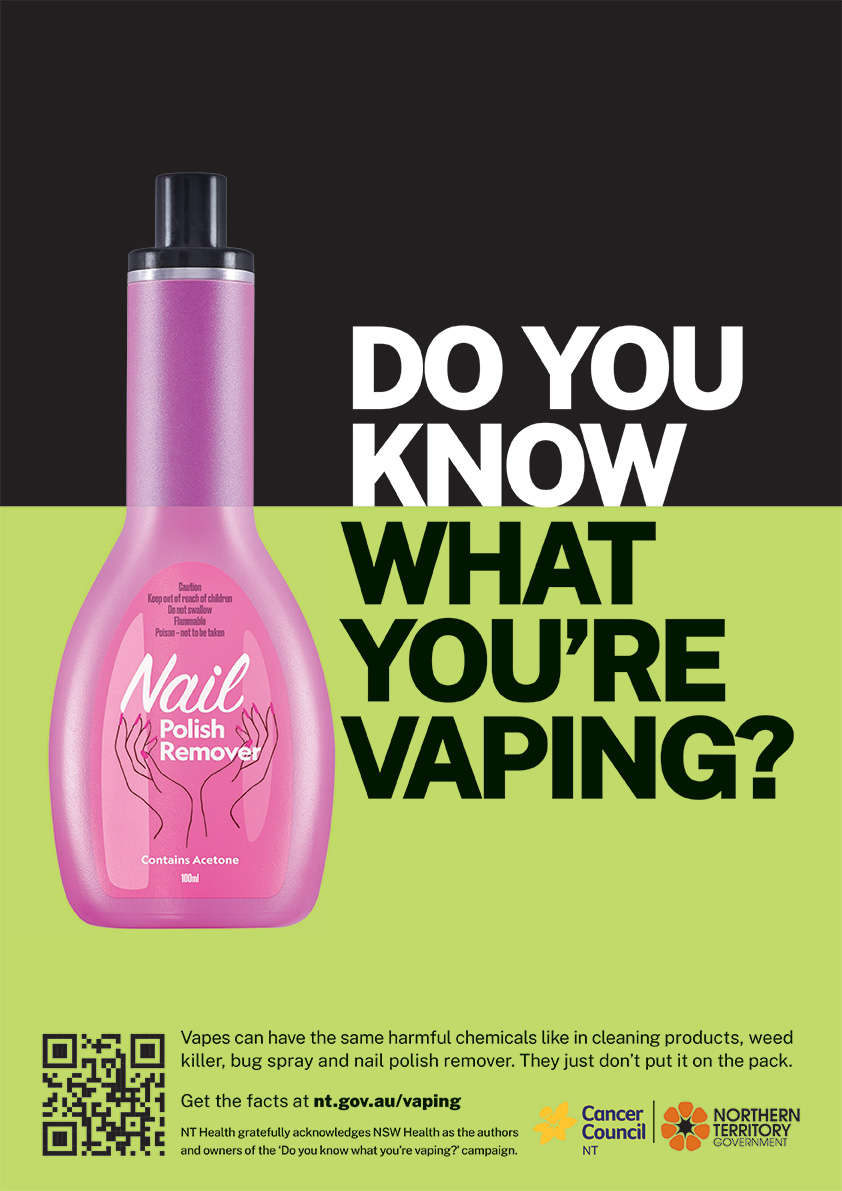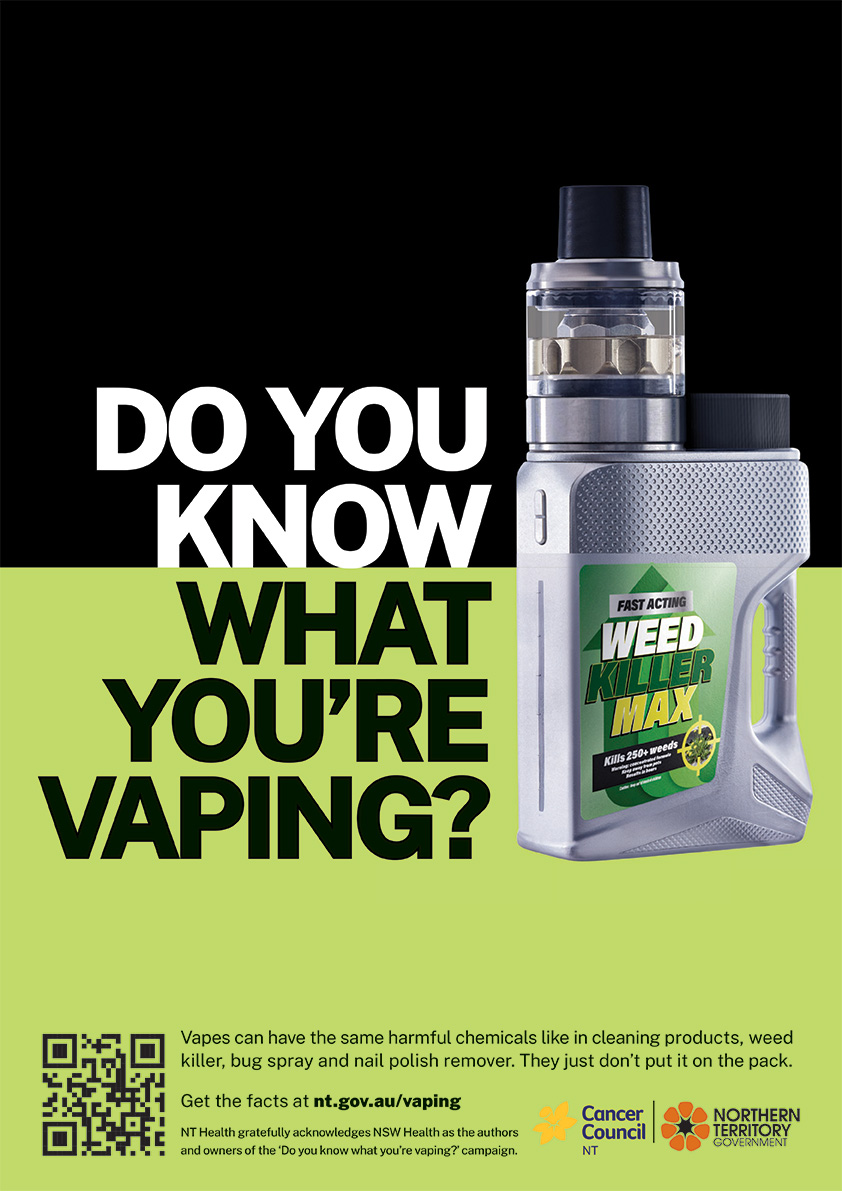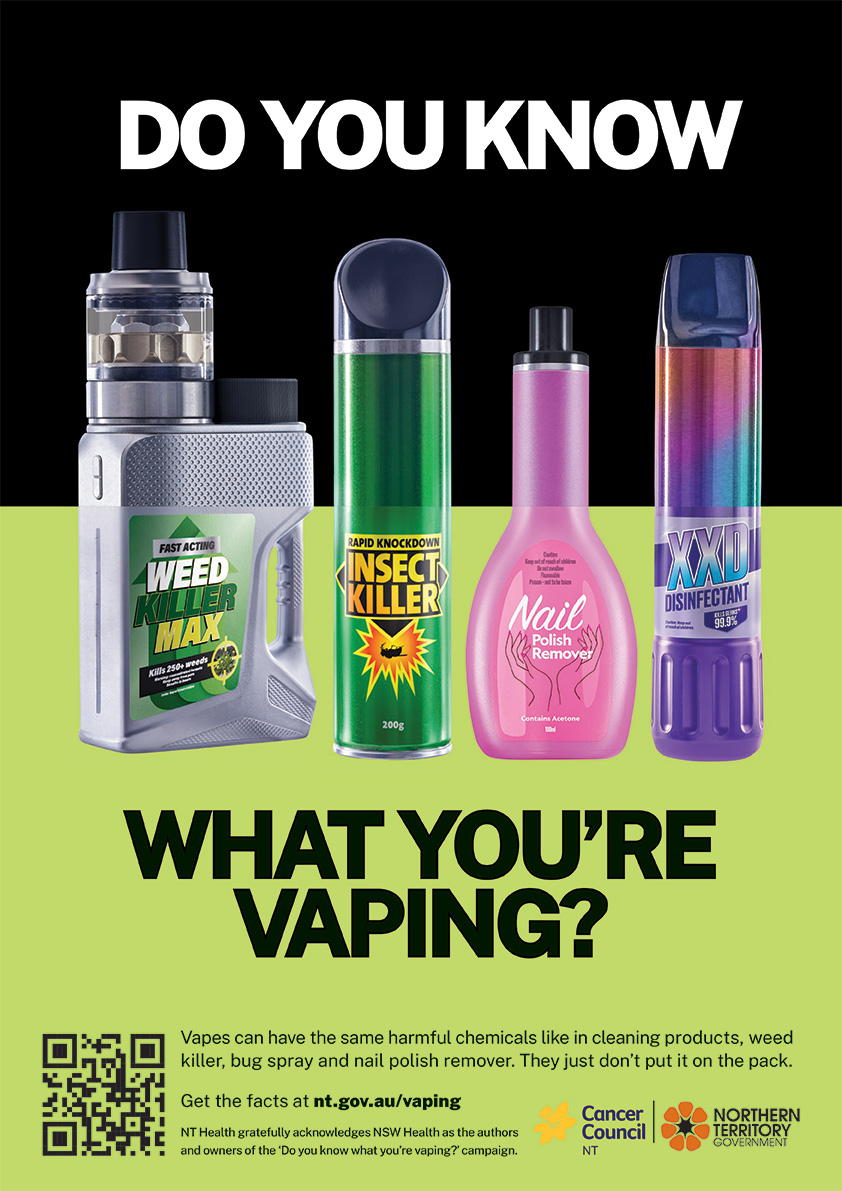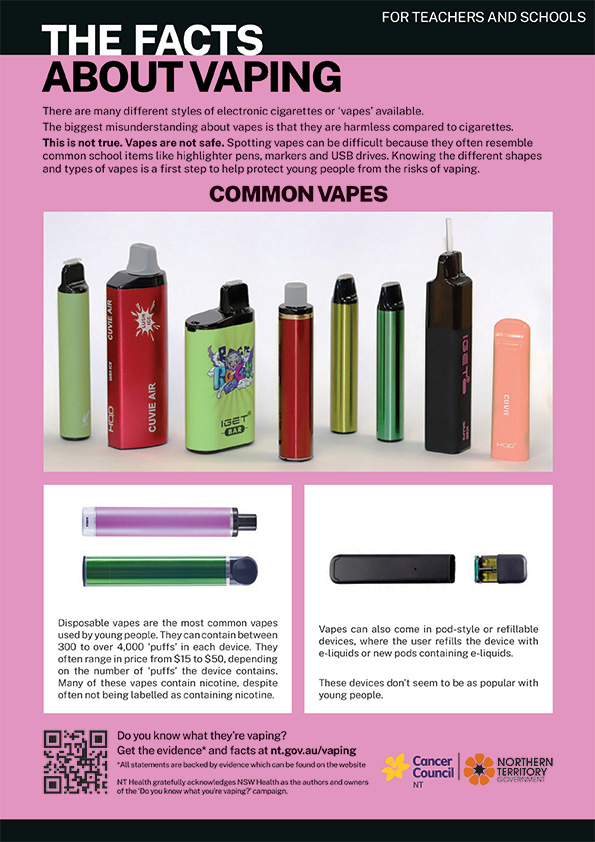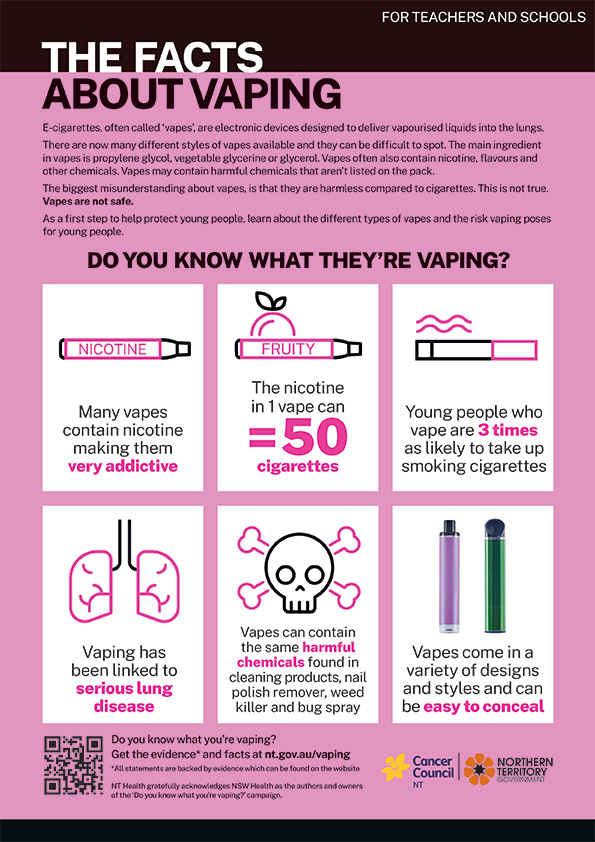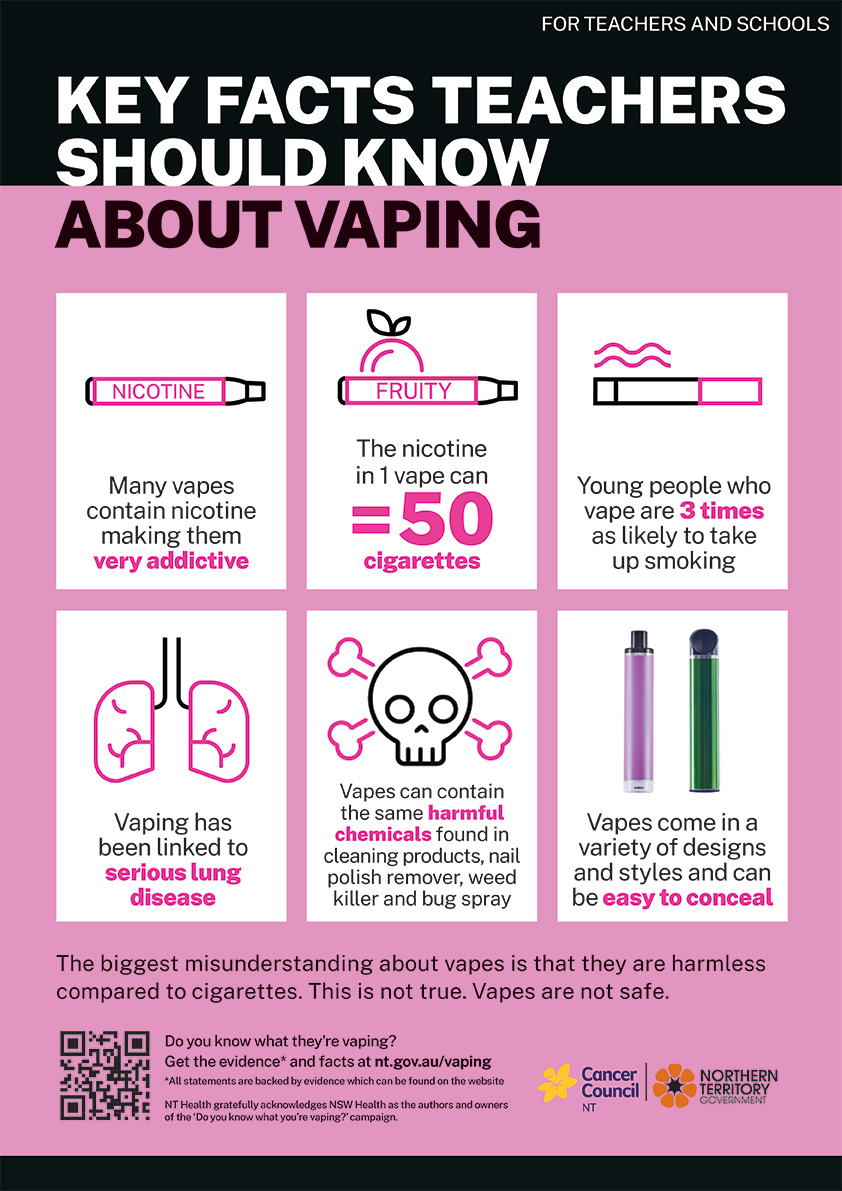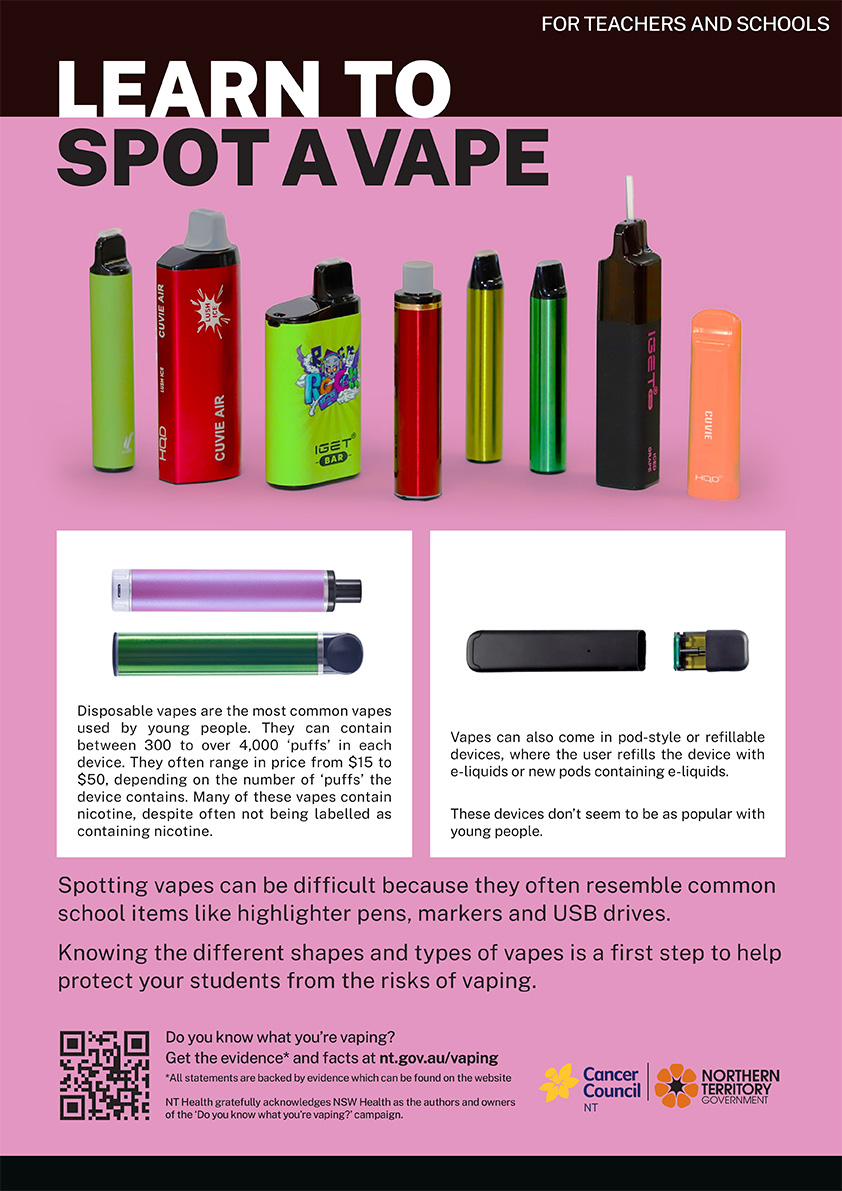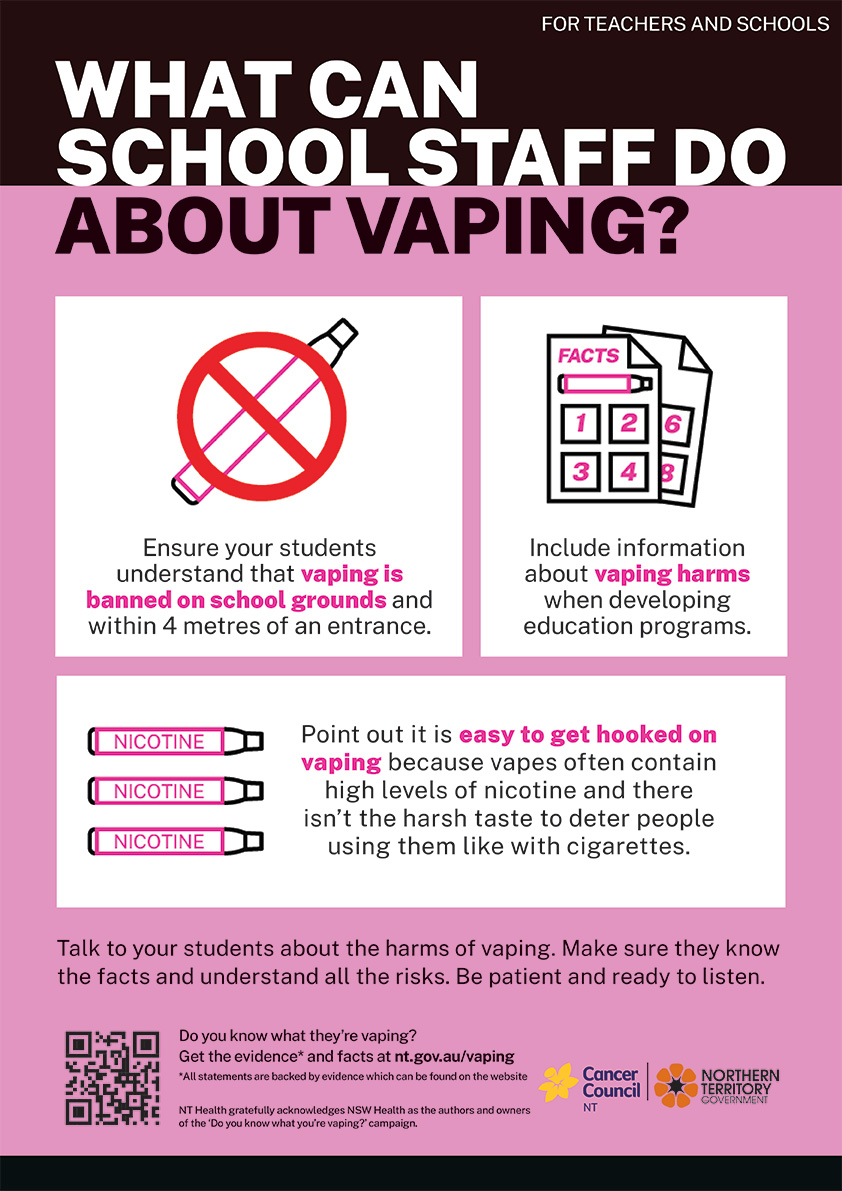Vaping
Introduction of new laws
From 1 July 2024, Australians can only buy vapes from pharmacies.
Vaping is inhaling a vapour that comes from an electronic device called an e-cigarette or vape.
They can look like metal pens, USB drives or small boxes.
Vaping looks just like smoking, but instead of tobacco, the device uses flavoured liquids or 'juice'.
The liquid is heated and turned into a vapour, which is then inhaled.
The smell of vapour is very different to traditional tobacco smoke.
Concerns about vaping
Most vape products are not regulated or tested and ingredients vary greatly.
Chemicals found in vapes
Some of the chemicals used in vapes are considered carcinogenic. This means they can cause cancer.
Testing of many other chemicals in vapes is inadequate or non-existent. Few have been tested in a ‘heat and inhale’ situation.
Potential cancer causing chemicals in vapes can include:
- formaldehyde
- heavy metals
- acetaldehyde
- acrolein.
Ingredients of vaping products are also found in:
- cleaning products
- nail polish remover
- weed killer
- bug spray.
Illegal nicotine in vapes
In Australia, it's against the law for vaping products to contain nicotine.
The exception is for a person who's trying to quit traditional smoking under the care of a doctor and a pharmacist.
Misleading labelling
The labels on vape products can be misleading. They don't always disclose all the ingredients.
Most illegally contain nicotine as well as other harmful chemicals.
Toxic metals used in vape devices
Some vape devices are made with metals that can be harmful to your health if ingested or inhaled, such as:
- arsenic
- lead
- nickel
- chromium.
When the metal components of vapes are heated during use, it can cause them to release tiny particles that are inhaled directly into the lungs.
Health conditions caused by vaping
Nicotine found in vapes can cause addiction just like smoking traditional cigarettes.
It can also affect several important steps in the development of cancer, and cause aggravation and recurrence of the disease.
There is concern that vaping can lead to:
- lung disease
- heart disease
- cancers.
Since it takes many years for diseases to develop, and vaping is still relatively new, it's hard to be sure of the long-term health effects.
Short-term health effects of vaping can include:
- throat irritation
- coughing
- nausea
- dizziness
- headaches.
Rules for buying and using vapes
Vapes and vaping devices can only be sold in pharmacies, regardless of nicotine content.
It's illegal for non-pharmacy retailers such as tobacconists, vape shops and convenience stores to sell:
- vapes
- vape liquids
- vaping devices.
For more details, visit the Therapeutic Goods Administration website.
Vaping and young people
The same rules for smoking cigarettes apply to vaping.
Even though it's against the law, some young people might still be sold or given vapes.
Why young people vape
Young people may choose to vape for various reasons, including:
- curiosity
- peer pressure
- belief that vaping is less harmful than smoking cigarettes
- appealing flavours
- coping mechanism for stress or emotions
- easier access and more affordable than cigarettes.
Vaping is especially concerning for young people because their brains are still developing, and the chemicals in vapes can harm their brain development.
Young people can also become addicted to nicotine quicker, and at lower or less regular levels of consumption, than adults.
It can also have an impact on:
- learning
- memory
- attention
- impulse control
- mood.
Talking to young people about vaping
If you think your child or a young person in your care is vaping, it's important to talk to them about it.
Try to make the conversation relaxed and easy.
You can call the Quitline on 13 78 78 to get further information and advice.
There are also services that young people can reach out to for help, including:
Support
If you're concerned about your vaping or need help to stop, talk to your doctor or call Quitline on 13 78 78.
If you need help quitting traditional smoking and you're considering using a vape, speak with your doctor. There may be other safer evidence-based options that a doctor can help you with.
For non-smokers, there are no health benefits of using vapes, it only causes harm.
Resources
The 'Do You Know What You’re Vaping' campaign provides resources to help young people, parents and carers, and teachers get the facts about vaping.
The campaign has been reproduced with permission of New South Wales (NSW) Health.
To read about the research carried out for this campaign, go to the NSW Health website.
Young people
Fact sheets
|
Posters
|
|
|
|
|
|
|
Give feedback about this page.
Share this page:
URL copied!
